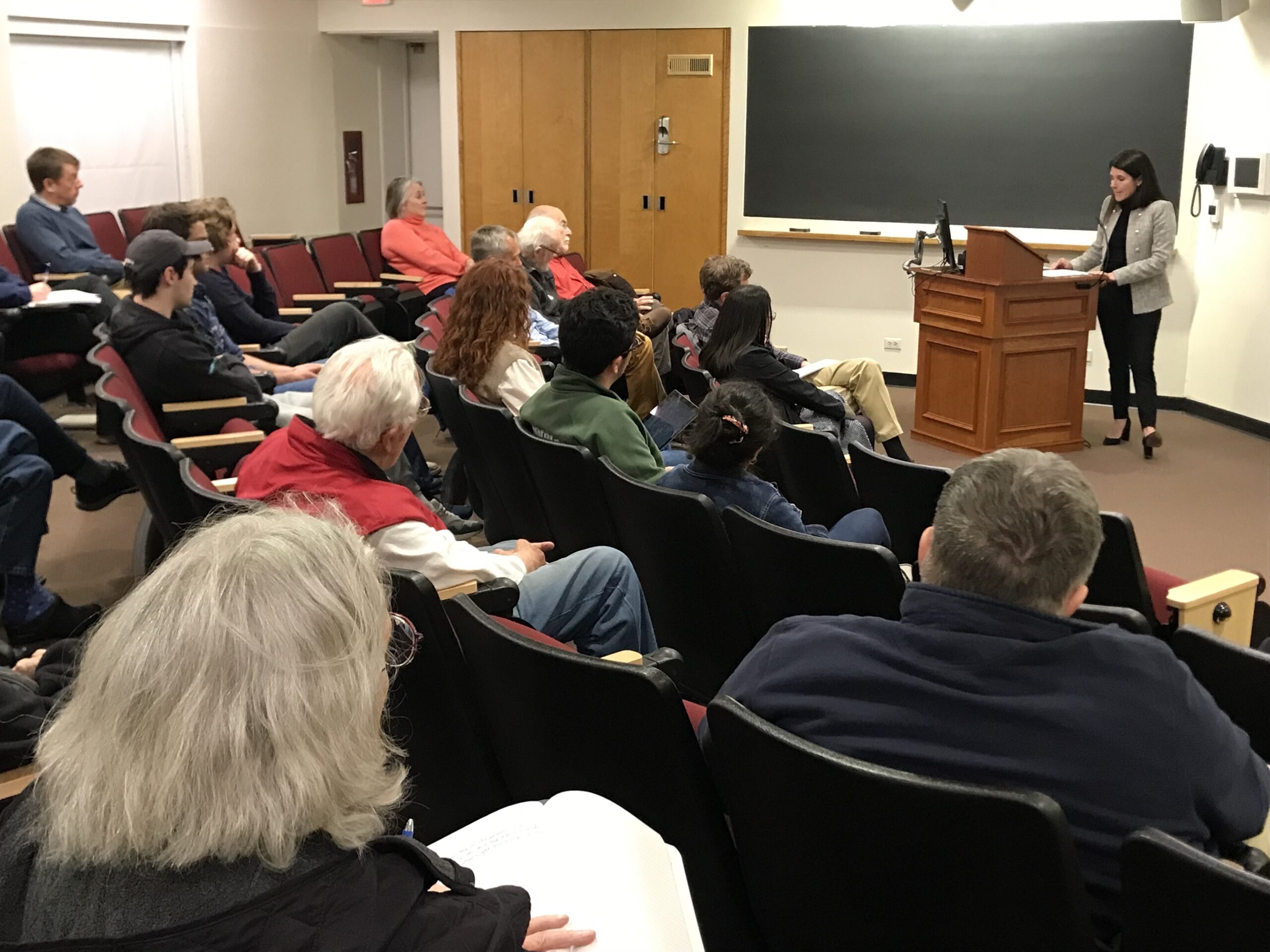Walsh ’95 urges jural participation
April 21, 2023
 Cora Dow
Cora DowAlexandra Walsh ’95 visited Bowdoin on Tuesday to deliver a lecture entitled “The Jury’s Duty: Protecting Participatory Democracy (And All Its Imperfections).” Walsh spoke about the importance of the American jury system, what threats the system is facing and how we can protect this core democratic institution.
Before starting her career as a trial attorney, Walsh was a philosophy major at Bowdoin and was invited to return to the College by her former professor, Professor of Philosophy Scott Sehon.
“I am teaching [‘Philosophy of Law’] now, so we rushed it together so that [Walsh] could visit the class as well and talk about … the value of juries and democracy,” Sehon said. “These days, [we have] highly polarized and anti-government attitudes, so this kind of civic opportunity that Alex is talking about makes a great deal of sense for Bowdoin students.”
Walsh began her talk by explaining the power and influence of juries in her courtroom experience. Using examples from her career and beyond, she explained how ordinary individuals can speak truth to power by participating on a jury.
“At its base, a jury trial is a microcosm of democracy. Democracy really means people participating in their government. People being a part of what the government does,” Walsh said. “It’s an opportunity for ordinary citizens to come together, to take on the authority of the government, to work together as a group and to make decisions about people’s legal rights and legal obligations.”
Walsh explained that jury participation can positively affect civic engagement. She explained that many citizens have lost trust in the government, but serving on a jury can disrupt those pernicious attitudes. Walsh said that serving on a jury can curb an individual’s withdrawal from democracy and reinforce the belief that each individual has the power to scrutinize the conduct of the powerful.
“Most jurors are people who, in their ordinary lives, don’t have a lot of power. They don’t have a lot of power in their workplace, they don’t have a lot of power in our political system, they don’t have a lot of power in our unequal economic system,” Walsh said. “Serving on a jury is an opportunity for them to be empowered, to participate actively in the liberty of this government.”
Turning to some of the threats the jury system faces today, Walsh explained that juries are often criticized for their lack of intelligence or overzealous and emotional nature. Walsh believes these criticisms to be unfounded.
“What the jury is supposed to do is bring the sensibility of the community, their sense of right and wrong and figure out what is needed to deter similar conduct in the future. Juries know what is needed to force institutions to finally change,” Walsh said.
Walsh ended her talk by exploring some of the ways to save this important institution.
“Care about it, know these things, understand the importance of the jury system. When you get called for jury service, you go enthusiastically,” Walsh said. “Discharge your civic responsibility, exercise that important right and encourage others to do it as well.”
During the Q&A session following the lecture, students, faculty and members of the Brunswick community engaged in dialogue regarding whether a jury system is the best way to get consistently unbiased results. Walsh explained that other systems would bring different, occasionally more detrimental, biases.
“Serving on a jury increases people’s trust and belief in the judicial system,” Walsh said. “The judiciary is the only [branch of government] where people directly participate and play a direct role. To take that away would take away people’s fundamental belief in our judicial system.”
Some audience members left the talk feeling empowered to participate in American democracy. Attendee Vilma Valera ’25 said she was called to jury service over spring break and left the talk deeply impassioned.
“Go to jury duty, see what it’s actually like, observe,” Valera said. “It’s important that juries are made up of common people, people who don’t have the same biases, people who understand.”

Comments
Before submitting a comment, please review our comment policy. Some key points from the policy: